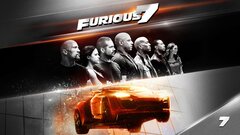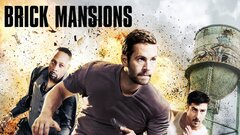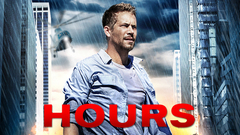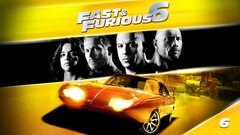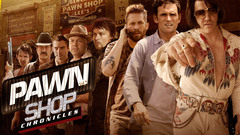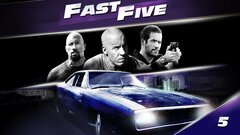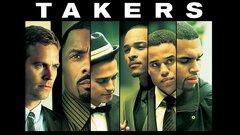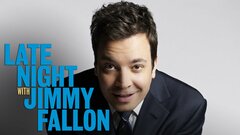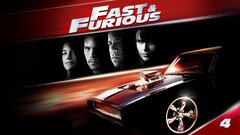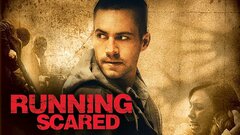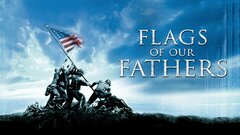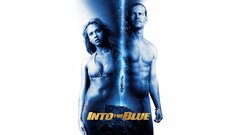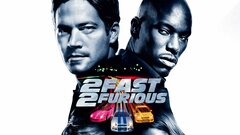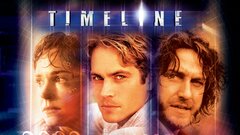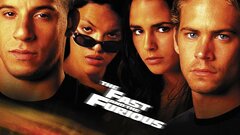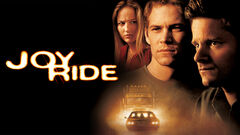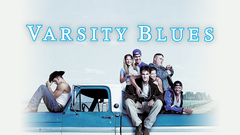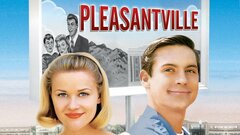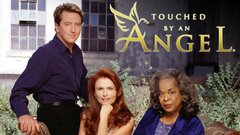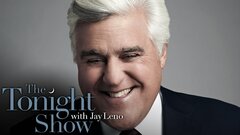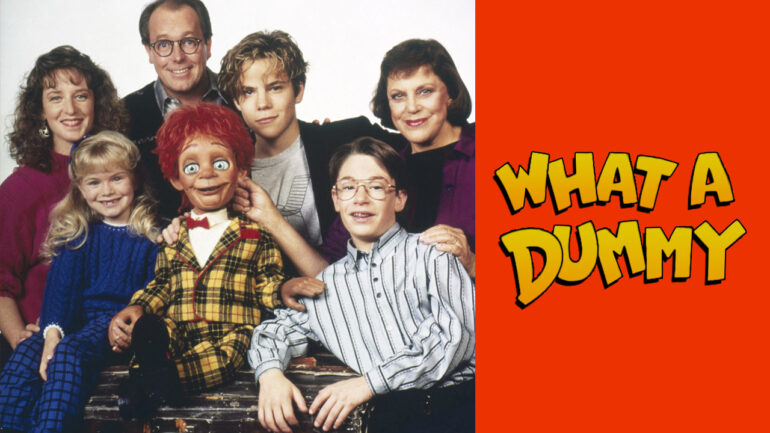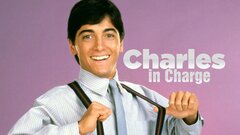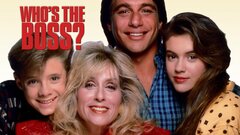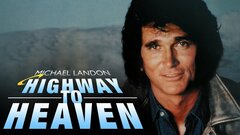While Paul Walker began his show business career as a child model, it was years before he became a household name considerably later with his role as LAPD cop-turned-criminal Brian O'Conner in the surprise action hit "The Fast and the Furious" (2001). After the phenomenal success of the testosterone-fueled film, Walker developed a following as an athletic, attractive leading man in actioners including "Into the Blue" (2005), and the family-oriented Disney offering "8 Below" (2006). He also found occasional success in more character-oriented dramas like "Pleasantville" (1998) and "Flags of Our Fathers" (2006), though it was Walker's continued involvement in the "Fast and Furious" franchise that kept him in the limelight and offset his string of second-rate thrillers that came and went with little notice.
In fact, the franchise became his de facto bread and butter, as Walker reprised O'Conner for "2 Fast 2 Furious" (2003), the fourth installment "Fast & Furious" (2009) and "Fast Five" (2011), the most critically and commercially successful movie of the bunch. Despite catcalls from some quarters over his limited range, Walker nonetheless was a central figure in one of the more popular and successful film franchises of recent memory. His death in a high-speed car crash in November 2013 shocked and saddened the film community, who lost not only a rising action film star, but a quiet humanitarian.
Walker was born on Sept. 12, 1973, and raised near Los Angeles where he made his debut at age two as a diapered toddler in a commercial for Pampers. With a former model for a mother and a building contractor father, it was probably predestined that Walker would grow into a attractive, strapping young man; one who found it relatively easy to break into television after landing guest roles on "Highway to Heaven" (NBC, 1984-89), "Charles in Charge" (CBS, 1984-85; syndicated, 1987-1990) and "Growing Pains" (ABC, 1985-1992). Walker maintained steady employment with a regular role on the syndicated series "Throb" and a season on the legendary soap opera, "The Young and the Restless" (CBS, 1973- ).
During the 1994-95, season Walker also enjoyed a role on the short-lived sitcom "The Boys Are Back" (CBS), starring as a teenager whose adult brothers move back into the family home. Walker made his feature film starring debut in 1998 in Disney's "Meet the Deedles," where his background in surfing and extreme sports proved useful for a movie about adventurous, free-spirited twins wreaking havoc in Yellowstone National Park. The same year, he had a featured role in the critical darling, "Pleasantville," as an earnest basketball player trapped in a black-and-white sitcom world until a 1990s girl (Reese Witherspoon) woos him into color.
His classic jock-next-door looks suited Walker perfectly for the part of football quarterback Lance Harbor in "Varsity Blues" (1999). In the box-office hit, Walker did a fine job of tracing the fall of an injured local hero who has little left when his high school football career is sidelined. Taking on a more villainous character, Walker appeared as Freddie Prinze, Jr.'s callous friend and rival in "She's All That" (1999), turning in an impressive comedic performance as a popular creep who refuses to forget a bet he makes with school golden boy Zack (Prinze) to turn awkward, unpopular Laney (Rachael Leigh Cook) into the prom queen. He also served up more dramatic work that year in "Brokedown Palace," as the boyfriend of one of a pair of young American travelers (Claire Danes, Kate Beckinsale) imprisoned in Thailand for drug smuggling.
After first working with journeyman director Rob Cohen on the B-level thriller "The Skulls" (2000), Cohen provided Walker with his breakout role when he cast him in "The Fast and the Furious" (2001), a high-octane action thriller in which Walker plays a detective infiltrating a ring of street-racing car thieves led by Vin Diesel. The film, which debuted with little fanfare or expectation, became a surprise hit. As a result, Diesel was proclaimed an overnight superstar, Cohen became an A-list director and Walker became a hot commodity at last.
Another competent auto-focused thriller, "Joyride" (2001), added a bit of extra luster to Walker's action hero sheen, but before he could establish himself firmly in other roles, he returned - without Diesel or Cohen - to head the cast of the sequel "2 Fast, 2 Furious" (2003). The John Singleton-directed sequel paired Walker's character with an ex-con buddy (Tyrese Gibson) to pull off an undercover heist. Surprising to some who expected the Diesel-free film to tank, "2 Fast" made off with over $200 million in box office receipts. Walker's follow-up, the big budget Michael Crichton adventure adaptation "Timeline" (2003), was an unfortunate misfire, while the Christmas drama "N l" (2004), directed by Chazz Palminteri, showcased the actor in a more sensitive new light. Unfortunately, it received limited theatrical release.
Walker returned to thriller territory with "Into the Blue" (2005), playing opposite Jessica Alba as one of four divers who discover a crashed plane full of illicit cargo and make a pact to keep their discovery quiet. Despite the interesting premise and appealing cast, "Into the Blue" was scorned by critics.
In "Running Scared" (2006), Walker received star billing for playing a low-level Mafia thug embroiled in a cop killing, but the over-the-top thriller was a veritable bomb at the box office and with critics. The actor fared better in Disney's family blockbuster "8 Below" (2006), an adventure yarn about a team of sled dogs finding their way across the Antarctic wastelands after being abandoned by a group of explorers. Sticking to more legitimately dramatic work, Walker was next cast in the critically acclaimed "Flags of Our Fathers" (2006), Clint Eastwood's historical drama about the six soldiers who famously raised the American flag in Iwo Jima near the end of World War II. After appearing in this much lauded drama, Walker returned to the genre best suited to his particular talents by starring in the rote actioner "The Death and Life of Bobby Z" (2007).
He did make another attempt to explore more dramatic tones with his portrayal of a former criminal who gets a second chance at life in the low-profile "The Lazarus Project" (2008).
In 2009, Walker re-teamed with his original cast mates eight years later for the sequel "Fast & Furious." Not unexpectedly, the retread project did not excite critics, but diehard fans showed up en masse, bringing in record-breaking ticket sales on opening weekend. After co-starring with Matt Dillon and Idris Elba in the crime thriller "Takers" (2010), Walker again reprised O'Conner for "Fast Five" (2011), the pulse-pounding fifth installment that moved away from street racing and into the realm of heist thriller, as the crew travels to Buenos Aires to rob a drug dealer of his money. This time, critics responded to the action flick - even if some of the more elaborate set pieces were implausibly silly - as the film went on to become the biggest earner in the series, setting up an inevitable sixth movie.
That film, "Fast & Furious 6" (2013) continued the franchise's move into crime caper territory with a high-octane edge, and was equally successful. Not one to rest on his laurels, Walker continued working on lower-budget films such as the action comedy "Pawn Shop Chronicles" (2013), which re-teamed him with "Running Scared" director Wayne Kramer, and "Hours" (2013), an indie drama set in the immediate aftermath of Hurricane Katrina.
On November 30, 2013, Paul Walker was killed in a car crash in the Los Angeles suburb of Santa Clarita. He was a passenger in his own 2005 Porsche Carrera GT, which was being driven by his friend Roger Rodus, a professional racer, when the car crashed into a light pole, bursting into flames. The two men were attending a toy drive sponsored by Walker's disaster relief charity Reach Out Worldwide, which he helped found in 2010.




